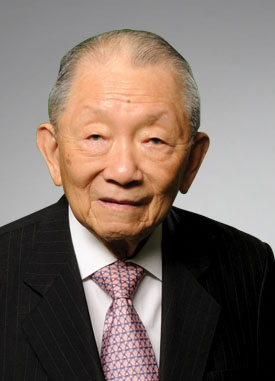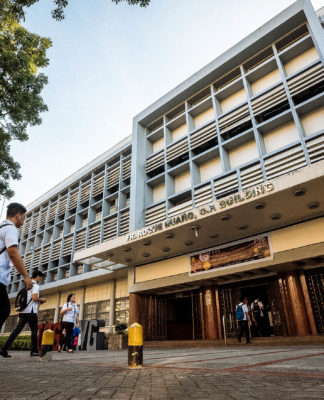THE DEPARTMENT of Education (DepEd) is still not conscious of the impact of the K to 12 program on college teachers despite allowing faculty representation in the drafting of the law’s implementing rules, union officials claimed.
“Up to now, DepEd does not have any study on the labor implications of K to 12. In fact, we expressed our fear that [the] K to 12 [program] may displace a lot of teachers in tertiary schools,” said Rene Tadle, internal vice president of the UST Faculty Union (USTFU). “We requested the departments concerned to come up with a study so that the government will know the kind of intervention needed to help the teachers who will be displaced.”
The K to 12 law or the Enhanced Basic Education Act of 2013, which President Benigno Aquino III approved last May, will add two years to secondary education. Tertiary-level faculty members will consequently lose their teaching loads in 2016, when there will be no enrollees for first-year college.
Last July, faculty union officials of Metro Manila higher education institutions (HEIs) signed a resolution requesting Aquino to allow faculty representation in the drafting of implementing rules and regulations or IRR.
Aside from Tadle, Nestor Asuncion, president of the Mapua Institute of Technology Faculty Union; and Lozanto De Lara Jr., president of the San Beda College Alabang Employees Association, represented college faculty members in the last two meetings for the drafting of the IRR, which was eventually signed last Sept. 4.
The IRR, which was supposed to take effect last Sept. 24, serves as guidelines for the implementation of the K to 12 law.
According to Section 34 of the IRR, DepEd will conduct a mandatory review of the program by the end of academic year 2014-2015 to look at issues such as shortages of teachers and learning facilities, National Achievement Test results, and funding requirements.
A midterm report will be submitted to a joint congressional oversight committee that will supervise, monitor and evaluate the implementation of the K to 12 Law.
But Tadle said reviewing and evaluating K to 12 would be insufficient.
“[T]hese are the things we need to submit to Congress by 2014-2015. What we are saying is that it is not enough,” Tadle said. “They have to study the labor implication [on college teachers]. “[H]indi naman pwedeng the benefit will only go to students [and there will be] no benefit to teachers at all. So at least the teachers have to be ready and the government has to inform us what its plans are.”
Tadle said the UST administration had been unresponsive on the issue.
“In fact we have asked them many times for any plan, and [told them] that they should involve us in whatever way so that the faculty members will also be ready,” he said.
DepEd K to 12 coordinator Elvin Uy said government agencies were already studying the effects of the program on college faculty members.
“[DepEd], along with other government agencies, notably the Department of Labor and Employment (DOLE), Commission on Higher Education (CHEd), and the Technical Education and Skills Development Authority (TESDA), are closely studying how best to address the various labor and management concerns related to the transition of HEIs to the K to 12 Program. This is precisely the reason that such concerns were included in both the legislation for K to 12 and its IRR,” Uy told the Varsitarian in an e-mail.
Section 31 of the IRR “tackles the potential displacement of college faculty members,” he said, noting that the section states that the DOLE will convene a technical panel composed of representatives from DepEd, CHEd, TESDA, academic and non-academic organizations, and administrators of educational institutions.
The panel will release a joint administrative issuance on the rights of academic and non-academic personnel in November.
The Varsitarian sought Clarita Carillo, vice rector for academic affairs, for comment. She has yet to respond.















